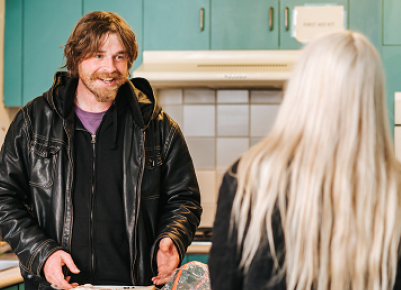Connecting for better health (in progress)
Monash University Health Economics Group received an NHMRC grant to investigate ways to identify and support people with chronic disease who are experiencing loneliness and social isolation. Mind’s Research and Evaluation Manager, Dr. Laura Hayes, is an associate investigator on the project. The objectives of the project are:
- To understand how loneliness and social isolation impact people at risk of developing or already having chronic diseases – much of which we do not know.
- To identify interventions that can be incorporated into the management of people with chronic diseases.
- To develop tools and resources which will help equip service planners to assist individuals who are at risk by providing effective and cost-effective interventions.
Connecting for Better Health Project - Monash University
Social inclusion in Mind’s Youth Outreach and Residential Services (2023)
This study analysed outcomes for service users accessing Youth Outreach Recovery Support (YORS) or Youth Residential Rehabilitation (YRR)Services between December 2019 and August 2022.
The Living in the Community Questionnaire was used to assess social inclusion, finding that service users were more satisfied with the time spent socialising, and their sense of being part of a group or community, after accessing YORS or YRR services.
YRR and YORS outcome measures report – snapshot summary (PDF 674 KB)
Supporting social inclusion in community gardening: the role of occupational environment (2012)
This study conducted by Mind and La Trobe University explored the participation of mental health support workers, people living with mental health challenges and volunteers in community gardening.
The study found that occupation-focused mental health day programs, such as supported community gardens can enable participation and contribute to social inclusion. It is important for day programs to create connections with their local communities (so they do not perpetuate exclusion by being physically or socially separate). This requires day programs to look beyond only providing recovery services to participants, to also building community with participants and local community members.
